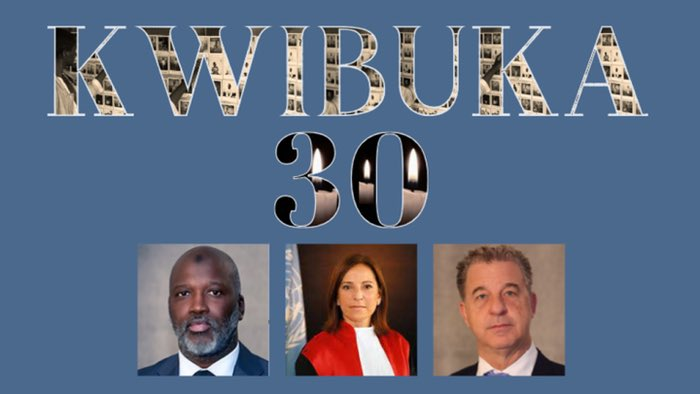
On the occasion of the International Day of Reflection on the 1994 Genocide against the Tutsi in Rwanda and Kwibuka30, the Principals of the International Residual Mechanism for Criminal Tribunals (Mechanism), President Graciela Gatti Santana, Prosecutor Serge Brammertz and Registrar Abubacarr M. Tambadou, issued the following statement:
“Thirty years ago today, Rwanda was plunged into genocidal violence aimed at destroying the Tutsi ethnic group. This Genocide was horrific in every way – children were bludgeoned, girls and women suffered gruesome rape and sexual violence, and more than 800,000 persons were slaughtered in a mere 100 days. To its lasting shame, the international community failed to act in the face of these massacres.
The Mechanism remembers the victims of the 1994 Genocide against the Tutsi in Rwanda – both those who lost their lives, and the survivors and family members whose suffering has been lasting.
The Mechanism also remembers the bravery and impact of the approximately 2,200 witnesses who testified before the International Criminal Tribunal for Rwanda (ICTR). Their evidence was crucial in allowing the ICTR to deliver judgements concerning the role of 73 persons during the Genocide and to conclude that ‘[t]he fact of the Rwandan genocide is a part of world history, a fact as certain as any other, a classic instance of a “fact of common knowledge”.
This 30th anniversary is an urgent reminder of the enormous tasks that still remain in securing justice for these atrocities. Since the ICTR’s closure in 2015, the Mechanism has now accounted for all but two of its remaining fugitives. At the national level, Rwandan authorities have tried many thousands of perpetrators, including some whose cases were monitored by the Mechanism following their referral by the ICTR. Despite such progress, many alleged génocidaires remain out of the authorities’ reach, having fled to other countries where they live with impunity. The Mechanism calls on the international community to join hands with Rwanda on this important occasion to ensure that justice prevails.
As Rwanda’s newer generations have to grapple with this history while building upon the remarkable progress of their elders, the Mechanism is honoured to play a role by safeguarding and enhancing access to the valuable legacy of the ICTR. In this respect, we are also striving to ensure that the factual and legal findings contained in ICTR and Mechanism judgements are readily available around the globe, in an effort to ensure that all persons remember, recognise, and learn from the 1994 Genocide against the Tutsi in Rwanda.” (End)
